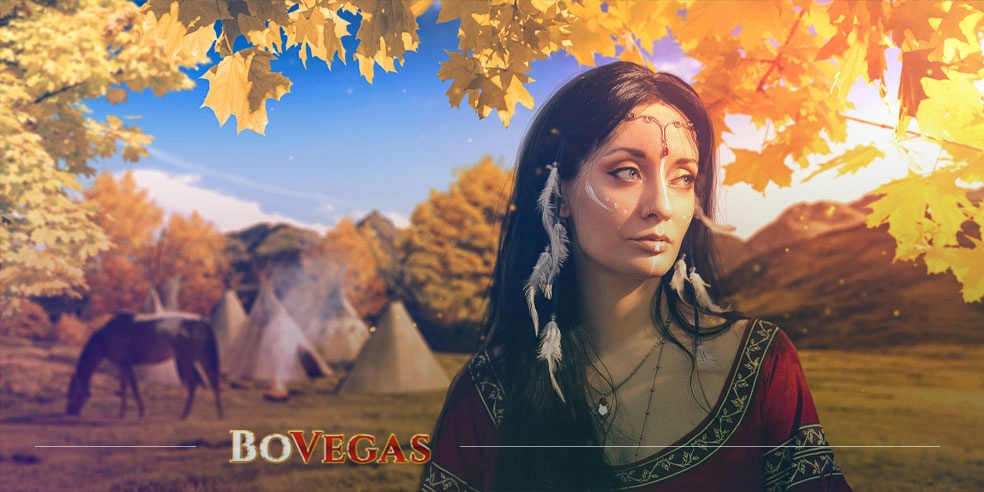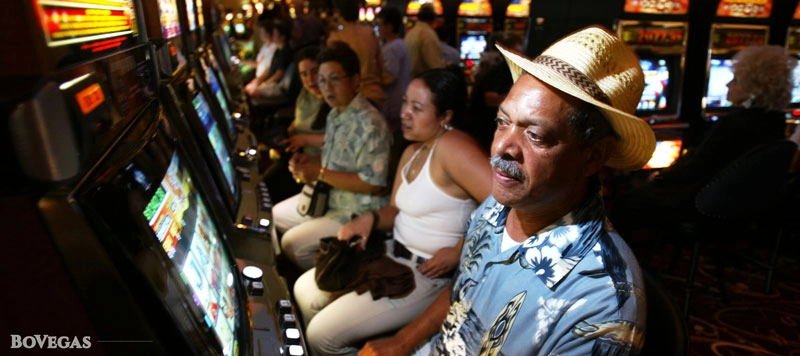



The phenomenon of Indian gambling is definitely worth close attention and special studies. In fact, it is an unprecedented story where many different – and sometimes controversial – agendas are strangely interlaced, which provides a lot of food for thought.
Native American gambling and tribal casinos nowadays are an inseparable part of the visual environment of gambling in the United States, and their structural importance for the whole industry is only growing. The Indian segment of gambling has, indeed, become very strong.
Let us take Gross Gaming Revenue (GGR) – a reliable tool for access to the economic value of gambling. It is calculated very simply: the total amount of the wager minus the winnings paid out. GGR of Indian gambling has recently crossed the threshold of $30 billion/year and continues to grow 3-4% annually, now constituting roughly 20% of the total GGR generated in the U.S.
There are about 240 tribes running 460 gambling operations. The potential for further growth is still far from being fully deployed: as we know, there are 562 native American tribes in the U.S., which means that only about half of the tribes are currently involved in the development of the gambling business. Of course, you can not just add them all up mechanically, but the experts agree that the Native American segment of gambling will expand in the years to come.
All this development did not come out of the clear blue sky. Gambling is a part of Native American culture but in a slightly different way. The major difference between Native American and, say, European gambling cultures is the purpose and the importance of gaming activity. A story goes that the Indians were deeply surprised to find out that white people could not eat, drink and even sleep if they did not have a strange matter they called “money.” And here is the difference: Native American gambling, historically, had nothing to do with wagering money.
The games they played were part of the traditional rituals and spiritual practices. Sometimes it was rather an augury. They also played some games ceremonially, at a certain time or in a certain season, to please the spirits or to attract luck they needed; for example, at tomorrow’s hunt, or just to predict an important event. The need to gamble and to play certain games was a part of their world outlook, which implied a lot of magic and primeval beliefs in hidden – even unthinkable – links, uniting everything around them in one universe.
But the arrival of Europeans changed everything. The relationship between good and money left no room for magic in gambling. However, this statement is quite disputable as we see how superstitious the gamblers of our time can be; how desperately they try to ‘attract luck’ and figure out the ‘hidden run’ of the cards, numbers, etc. But as far as the Native Americans are concerned, they quickly acquired the new habits of gambling – the habits which, in fact, had nothing in common with their long-lasting tribal tradition of gambling for ritual, ceremonial and magic purposes.
That is why it is safe to say that those who advocated the revival of Indian gambling, to a certain extent, had paltered with the truth when they emphasized that gambling as we know it had always been a part of the Native American tradition. Strictly speaking, it was not.
 Today, it is really very difficult (if not impossible) to say whose brilliant idea it was to develop Indian gambling. The Indian Gaming Regulatory Act (IGRA) – a U.S. Federal Law, passed on October 17, 1988 – was just the last link in the long chain of many events – the link that had finally established a jurisdictional network to govern gambling in Native American reservations and other tribal lands in the U.S.
Today, it is really very difficult (if not impossible) to say whose brilliant idea it was to develop Indian gambling. The Indian Gaming Regulatory Act (IGRA) – a U.S. Federal Law, passed on October 17, 1988 – was just the last link in the long chain of many events – the link that had finally established a jurisdictional network to govern gambling in Native American reservations and other tribal lands in the U.S.
In a way, the development of Indian gambling supported, or even catalyzed, the very idea of economic self-sufficiency and sustainability of indigenous communities – the idea that was hanging in the air since the late 70s. It was the time when it became obvious that the global economic development and prosperity build-up taking place in the post-war decades had been leaving indigenous people behind. Certainly, the emphasis that Reagan’s administration put on the issue of economic self-standing of the native tribes had also contributed to a more active search of new alternative ways to generate revenue for depressed and socially distressed areas and communities.
As we know, bootstrapping works in a variety of socioeconomic agendas. It cures poverty, welfare dependency, unemployment, school dropout, crime and a whole bunch of social diseases – provided there are all kinds of needed support: institutional and legal framework and broad public consensus about the ‘ways out’ that have been determined and agreed upon.
In the late 70s and early 80s, several tribes opened bingo rooms to generate the revenue they needed. This development took place in California and Florida and soon began to spread to other states like New York and Wisconsin. Clearly, it was a change that raised several eyebrows, but the most important thing was that the new reality called for new legislation. Legal-wise, there have been several cases bringing the problem under very close consideration with many pros and cons thoroughly weighed. The casino games on the Indian reservations have become very popular and now include table and card games, and of course, slot machines.
One of such cases was Helen and Russell Bryan v. Itasca County (1976). Helen and Russell, Native Americans from the Chippewa tribe, living on a reservation in Minnesota, filed a lawsuit against the state arguing that state authorities had no right to impose taxes on personal property of the Native Americans living on reservations. While both the district court and the Minnesota Supreme Court decided in favor of the state, the Supreme Court fully reversed these decisions in 1976.
Another remarkable case to prepare the ground for the IGRA was California v. Cabazon Band of Mission Indians. The Cabazon tribe opened bingo and card clubs on their reservation, and the state wanted to shut this business down. The tribe claimed that the attempted shutdown was illegal in light of the sovereign right of the reservation, and the case was considered by the Supreme Court in 1987. The Court eventually confirmed that gambling in reservations is not subject to state regulations – unless the state law prohibits any form of gambling as such.
By 1988, the overall GGR generated by Indian gambling had reached a remarkable (back then) level of $110 million, and the states wanted to have a bite of this dripping roast. Taxation, regulation and a need to fight organized crime vs. tribal sovereignty and economic benefits for the Native Americans were the main arguing leitmotifs of the broad discussion and a series of compromises that eventually led to the adoption of the IGRA in 1988.
The years that passed after the Indian Gambling Regulation Act adoption in 1988 had shown a skyrocketing growth of gambling business on reservations – as mentioned, GGR of $110 million in 1988 is not even comparable with over $30 billion we see nowadays. Indian gambling turned out to be, perhaps, the most successful business development idea for the Native communities in the US.
Gambling powered economic development – it created many jobs, generated funds necessary for the well-being and numerous infrastructure improvements, and produced a lot of synergies with the hospitality business and tourism. About 2 million foreign tourists visited native reservations in 2018, and it is almost impossible to isolate the effect of Indian gambling.

However, there still are many implications and issues requiring close attention. Native reservations represent an important part of the ‘environmental backbone’ of the whole continent, supporting biodiversity, natural landscape preservation and the balance of natural processes shaping the ecosystems. This environmental agenda alone is calling for a more careful approach to such issues as the constantly growing influx of visitors and the development of large-scale infrastructural projects.
Law and order represent another concern. Of course, gambling as such does not generate crime and corruption. People do. But we should remember that in 2006, some Indian casino lobbyists were convicted of fraud, conspiracy and tax evasion. It was the infamous Jack Abramoff Indian Lobbying scandal. The lobbyists had bribed several congressmen and overcharged their Indian customers, gaining around $90 million.
Indeed, Indian gambling, as it has grown to its present scale, is a dripping roast nowadays. That is why keeping an eye on it is a very crucial task.
Casinos do pay their tribe members. Moreover, if a tribe member wins at a casino or a bingo hall on a reservation, he/she won’t pay taxes on the winnings. But mostly, Native Americans work at those casinos, thus making for satisfactory standards of living for their families. However, it has also been shown that reservation casinos have a negative impact on the tribes’ sovereignty and increase dmestic abuse.
Native American casinos are subject to some types of both state and local government taxation. Yet they also have some privileges regarding corporate income tax – they don’t pay it. As for other types of taxes, Native American casinos do pay taxes for the services and products that they sell to tourists. In other words, if you’re not a member of the tribe, you’ll have to pay taxes on your winnings.
It has been shown that Native American casinos significantly raise revenues from the casinos operation, stimulating economic growth, creating jobs and increasing independence from state governments. As of 2017, Native American casinos across the U.S. raised nearly $32.4 billion of gross revenue.
Las Vegas is not a Native American reservation, but it indeed has a few Native American casinos operating today, mostly downtown. Some players like them, some don’t. On the positive side are pleasant service, food and drinks (with big discounts and even free meals), free rooms and newly built hotels with excellent infrastructure. On the negative side are the heightened house edges compared to the usual rates in other Vegas casinos, limited table games and rare wins on slots. Most people who live nearby say that they regularly play slots but never actually win.

Slot machines have always been at the top of the list of the most sought-after casino games. Gamblers can enjoy playing them at traditional casinos, as well as their virtual counterparts. If you are curious about online slots vs. offline slots clash, read this article… Online and Offline Slots Gaming Experience Slots are among the […]
Since the very dawn of time, humans have always been attracted to gambling. Sports events, horse racing, card games and, the most recently, online casinos have all contributed to the world’s craze around this very popular, and, one might think, easy way to earn some extra money – gambling. But one nation allegedly managed to […]
Essential Info About Slot Games So you’ve decided to finally start playing slot games. This is a sensible decision: well done! Why? Well, just think about all the benefits that slots (and online slots, in particular) are going to bring you. You’ll get a decent adrenaline boost, have some fun, you won’t have to get […]
Blockchain gambling is becoming extremely popular nowadays, and Ethereum (ETH) casinos are picking up steam. And it does appear that by this point, some cryptocurrencies are no longer able to keep up with the pace and satisfy their users. This tendency started with Bitcoin (BTC). There were actually many Bitcoin Dice and other gambling apps, […]
If you love gambling and have been to a land-based casino at least once, you may have thought about becoming a dealer. Playing the same game but from the opposite side, while communicating with other players, sounds like a dream job, right? A dealer is a straightforward job, and you will be the heart and […]
On Monday September 14, MGM announced that it plans to open its first smoke-free casino at the end of September, when Park MGM will finally reopen its venues to players and tourists. The resort comprises around 2,990 rooms and various restaurants, and it’s set to be reopened on September 30. The venue has been closed […]
Online gambling has undoubtedly taken a place of true supremacy over the casino industry during the pandemic. And the reason for that is quite clear: online casinos are more accessible, and you can always count on some encouragement from the casino administration to help you boost your game. However, this digital revolution has only been […]
The large selection of online gambling sites out there can make players somewhat puzzled, and give them a feeling of uncertainty about making the right choice of casino. Each online gambling venue offers its own conditions, games, and various bonuses, of course; but the most important thing is the reliability of the casino and the […]